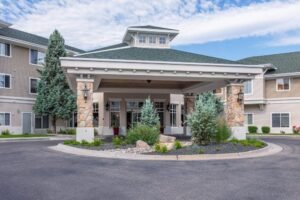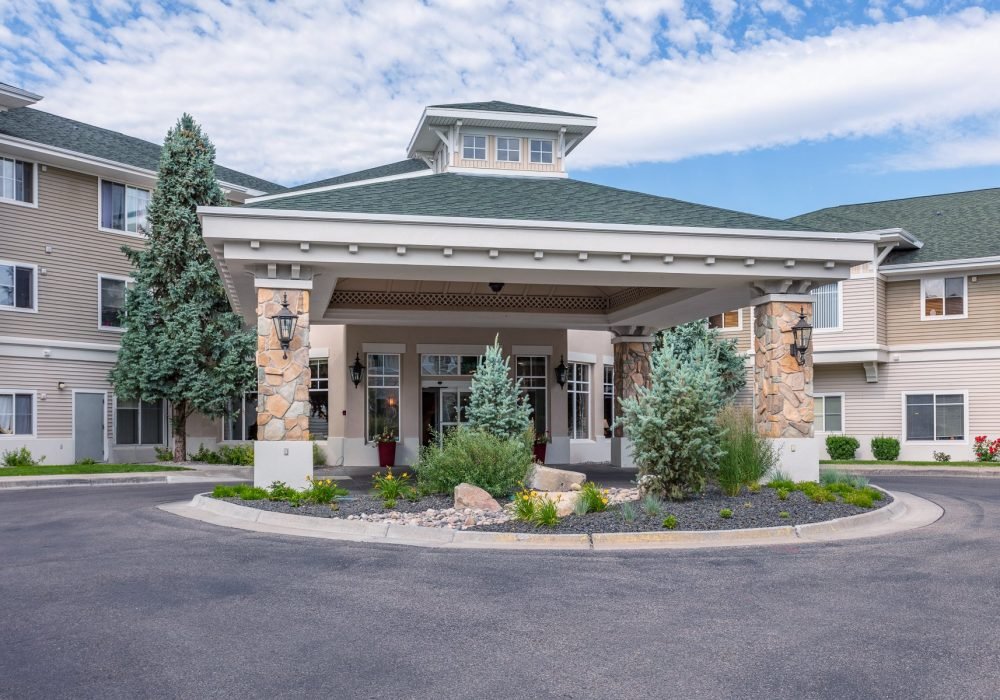Living in a care facility should be more than just receiving basic assistance with daily tasks. It should be a place where individuals can experience holistic care, where their physical, emotional, spiritual, and intellectual well-being is nurtured and supported. In this article, we will explore the concept of holistic care and how it can be embraced in a living care facility to promote wellness and enhance the quality of life for its residents.
Introduction
Holistic care is an approach that recognizes the interconnectedness of the various aspects of an individual’s well-being. It goes beyond addressing physical ailments and extends to nurturing the emotional, spiritual, and intellectual needs of a person. In a living care facility, holistic care involves creating an environment that supports residents’ overall well-being and provides them with opportunities to thrive.
Physical Well-being
Physical well-being is the foundation of holistic care. It involves ensuring that residents’ nutritional needs are met through carefully planned and balanced meals. A well-balanced diet, rich in nutrients, supports their overall health and vitality. Additionally, regular exercise and physical activities are essential for maintaining strength, mobility, and independence. Living care facilities should provide opportunities for residents to engage in physical activities suitable for their abilities.
Regular medical care and preventive screenings are also vital components of physical well-being. Routine check-ups, medication management, and access to specialized care when needed help residents maintain their health and manage chronic conditions effectively.
Emotional and Mental Well-being
In a living care facility, creating a supportive and nurturing environment is crucial for the emotional and mental well-being of residents. Caregivers and staff should foster a sense of belonging, respect, and empathy. They should be attentive to residents’ emotional needs and provide a compassionate ear when necessary.
Promoting social interactions and engagement is another important aspect of emotional well-being. Encouraging residents to participate in group activities, social events, and communal dining fosters a sense of community and reduces feelings of isolation or loneliness.
Furthermore, offering counseling and therapy services can provide residents with a safe space to express their feelings, cope with life transitions, and address any mental health concerns they may have. Access to trained professionals who can provide counseling or therapy sessions can greatly contribute to the emotional well-being of residents.
Spiritual Well-being
Recognizing and respecting residents’ spiritual beliefs and practices is essential for their holistic care. Living care facilities should encourage and support residents in maintaining their spiritual connections. This can involve providing access to religious or spiritual communities, offering opportunities for prayer or worship, and accommodating individual spiritual practices or rituals.
In addition to organized religious activities, promoting meditation and mindfulness practices can enhance residents’ spiritual well-being. These practices can help them find inner peace, promote relaxation, and foster a sense of purpose and connectedness.
Intellectual Stimulation
Engaging residents in intellectual activities is important for their cognitive well-being. Living care facilities should organize educational programs, workshops, and discussions on various topics of interest. These activities provide opportunities for residents to learn, explore new ideas, and stimulate their minds.
Promoting lifelong learning is another aspect of intellectual stimulation. Encouraging residents to pursue hobbies, learn new skills, or engage in artistic endeavors can contribute to their overall sense of fulfillment and intellectual growth.
Recreational and Leisure Activities
Recreational and leisure activities play a vital role in holistic care. Living care facilities should plan recreational outings and trips to provide residents with opportunities for enjoyment and exploration. Engaging residents in a variety of hobbies and interests, such as arts and crafts, gardening, or music, can bring joy and a sense of purpose to their lives.
Furthermore, organizing entertainment and cultural events within the facility, such as live performances or movie nights, creates a vibrant and engaging atmosphere for residents to enjoy.
Environmental Considerations
The physical environment of a living care facility plays a significant role in residents’ well-being. It should be comfortable, aesthetically pleasing, and designed to meet their unique needs. Creating a welcoming and calming atmosphere can contribute to a sense of peace and contentment.
Incorporating nature and green elements, such as indoor plants or access to outdoor gardens, can provide residents with a connection to the natural world, which has been shown to have positive effects on well-being. Additionally, ensuring safety and accessibility throughout the facility is crucial for residents’ physical and emotional security.
Personalized Care Plans
Each resident in a living care facility has unique needs and preferences. Holistic care involves assessing individual requirements and developing personalized care plans. These plans should consider physical, emotional, spiritual, and intellectual aspects of well-being.
Regular evaluation and adjustment of care plans are essential to ensure they remain effective and responsive to residents’ changing needs. Ongoing communication between caregivers, residents, and their families is crucial for maintaining the highest level of holistic care.
The Role of Caregivers and Staff
Caregivers and staff in a living care facility play a vital role in delivering holistic care. They should be compassionate, well-trained professionals who understand the importance of addressing residents’ diverse needs. A collaborative approach to care, where residents are involved in decision-making and their preferences are respected, fosters a sense of autonomy and dignity.
Building strong relationships between residents and caregivers is key to providing holistic care. When caregivers take the time to listen, understand, and connect with residents on a personal level, it creates a trusting and supportive environment.
Benefits of Holistic Care in a Living Care Facility
Embracing holistic care in a living care facility has numerous benefits for residents. It enhances their overall quality of life by addressing their physical, emotional, spiritual, and intellectual needs comprehensively. Some specific benefits include:
- Improved well-being and happiness: Holistic care promotes a sense of fulfillment, purpose, and happiness among residents.
- Enhanced physical health: By addressing physical needs, residents experience improved physical health, reduced illness, and increased vitality.
- Emotional well-being: Holistic care fosters emotional well-being by providing a supportive environment, promoting social interactions, and offering counseling or therapy services.
- Spiritual fulfillment: Residents can find spiritual fulfillment through access to religious or spiritual communities, engagement in spiritual practices, and opportunities for meditation and mindfulness.
- Cognitive stimulation: Intellectual activities and lifelong learning opportunities in a living care facility contribute to cognitive stimulation, keeping residents mentally engaged and promoting cognitive health.
- Social engagement: Recreational outings, leisure activities, and communal events foster social connections, reduce isolation, and enhance residents’ social well-being.
- Personalized care: Holistic care emphasizes personalized care plans, ensuring that residents’ individual needs and preferences are addressed effectively.
- Reduced reliance on medication: By prioritizing holistic care, living care facilities can potentially reduce the reliance on medication and medical interventions, promoting natural and holistic approaches to well-being.
In conclusion, holistic care is essential for promoting wellness in a living care facility. By addressing the physical, emotional, spiritual, and intellectual needs of residents, holistic care enhances their overall quality of life. It provides a supportive and nurturing environment where residents can thrive and experience fulfillment. Embracing holistic care in a living care facility not only improves the well-being of residents but also fosters a sense of community, connection, and purpose.
FAQs
- How does holistic care differ from traditional medical care?
Holistic care takes a comprehensive approach by addressing not only physical health but also emotional, spiritual, and intellectual well-being. Traditional medical care focuses primarily on diagnosing and treating specific ailments.
- Can holistic care be personalized to individual residents?
Yes, holistic care emphasizes personalized care plans that consider the unique needs and preferences of each resident. This ensures that their specific requirements are met effectively.
- Are there specific activities or programs for intellectual stimulation?
Living care facilities organize various activities such as educational programs, workshops, and discussions to provide intellectual stimulation. They also encourage residents to pursue hobbies, learn new skills, and engage in artistic endeavors.
- How does holistic care contribute to overall happiness?
Holistic care recognizes the importance of addressing all aspects of well-being. By nurturing physical, emotional, spiritual, and intellectual needs, residents experience a sense of fulfillment, purpose, and happiness.
- Can holistic care reduce the need for medication?
Holistic care aims to promote natural and holistic approaches to well-being. By addressing residents’ overall needs comprehensively, living care facilities may be able to reduce the reliance on medication and medical interventions.









